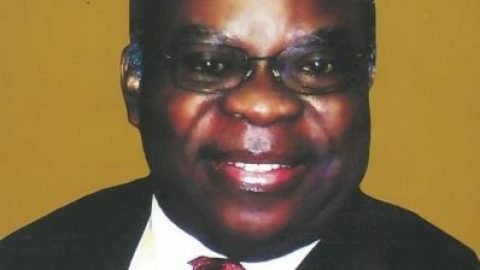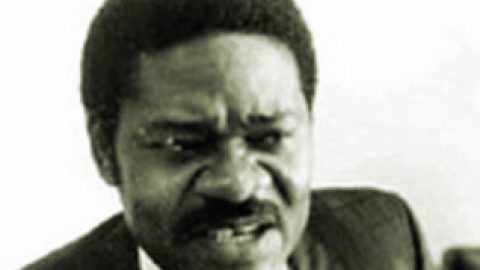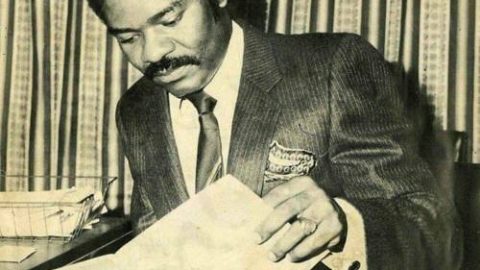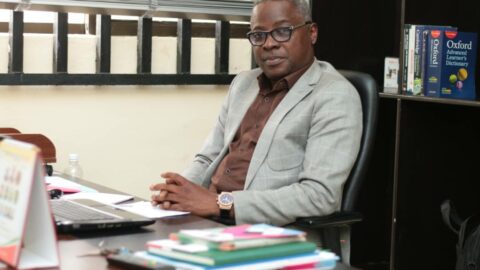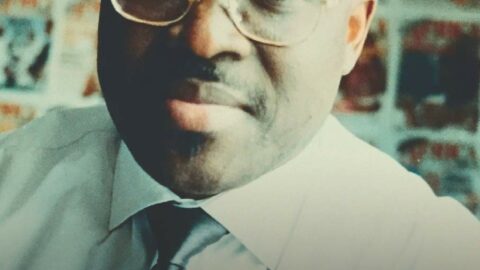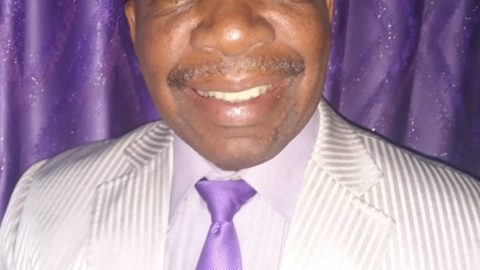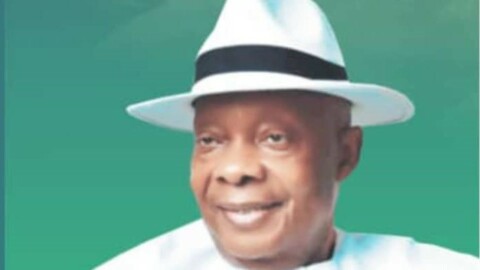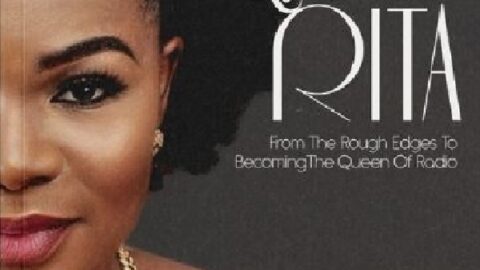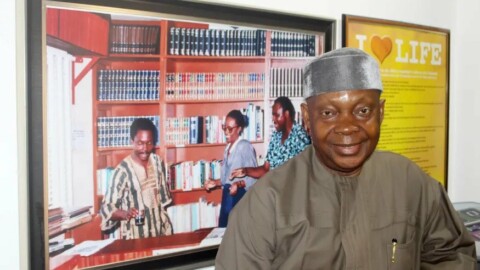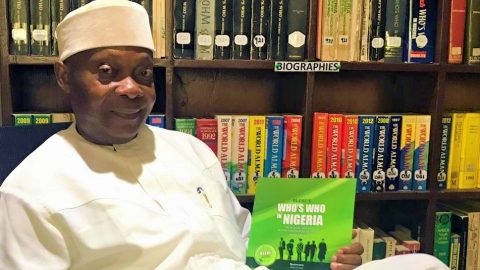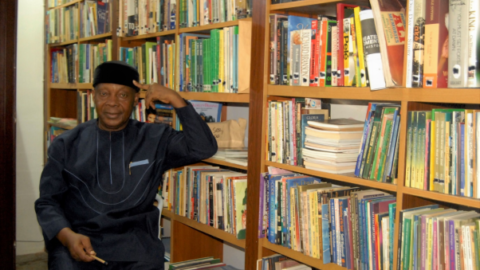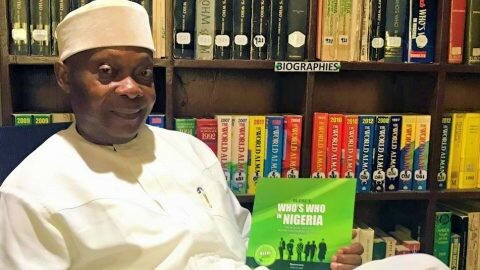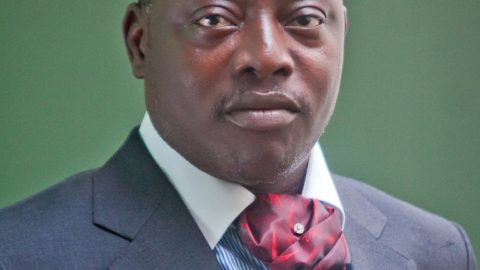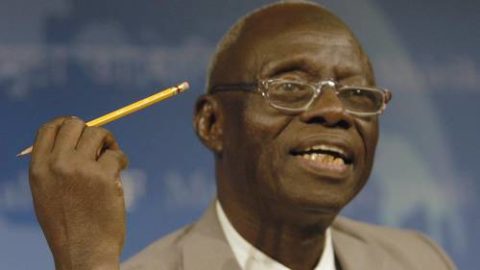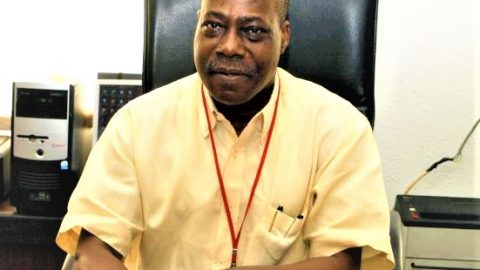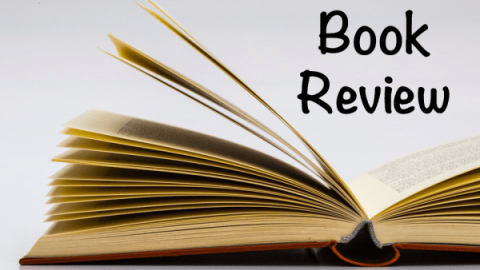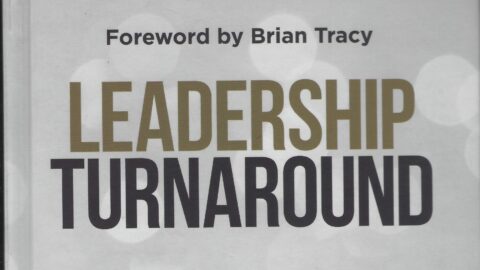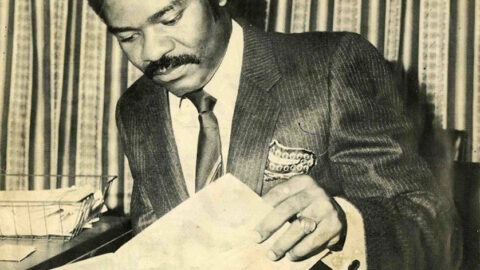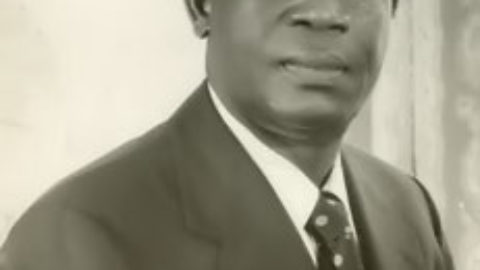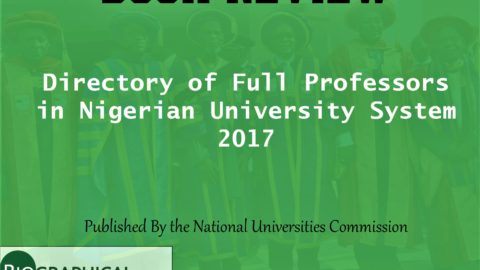A BOOK REVIEW BY SAM AKPE
If any Christian has ever been confused about Psalms Chapter 23 Verse 4, the time to end that confusion is here. Walk across to the nearest bookstore, get a copy of the book entitled: Saved for His Praise; and you will not regret it. That verse of the Bible says, “Yea, though I walk through the valley of the shadow of death, I will fear no evil: for thou art with me; thy rod and thy staff they comfort me.” For a better understanding; let’s read from the first verse.
Saved for His Praise is a 372-page book by Emeka Obasi—a widely-connected and politically exposed journalist; a publisher and a media consultant. Emeka is one of the few Nigerians who have used journalism as a platform to attain great heights in other media-related fields. Though he has not yet become a practising politician, he has—even if reluctantly—accepted and served in political offices. By the way, don’t let the title of the book confuse you; he is not yet an ordained pastor.
The valley of the shadow of death—as captured in the above Bible passage—means different things to different people under different circumstances. It could be crushing poverty—as experienced by Emeka’s family after the Nigerian civil war. It could be a bombardment with false prophecies directed at a gullible and undiscerning congregation resulting in deadly accusations; as it happened in Emeka’s family. It could be intra-family hatred arising from a combination of factors that are external to the family; as faced by Emeka. It could also be forced attempts by parents and siblings that one must marry a particular person from a certain family for obvious reasons or face dreadful consequences. There are other worse case scenarios.
In the face of all these, the Biblical David who wrote the above passage said “I will fear no evil,”—that is, none of these will move me; I will not be distracted; I will not bow to these pressures; I will not be intimidated; I will conquer all. In other words, I will keep going; I will only look at the might of my God and not the size of the problem. The valley is a mere passage. It’s not my destination. My eyes are on the destination. Or as disciples of the Machiavellian theory would say, the end justifies the means. People may gossip about me. The gullible in the audience may believe them without cross-checking what they hear. Still, I will not be distracted. Even if they pull me down by the weight of their distraction, I will keep going till I get out of the valley. Even when they hate me, I will still love them.
The reason for such confidence and bold strides is because “thou art with me.” Just as they say, one with God is a majority. The writer of that verse concludes that because God is with him, “thy rod and thy staff they comfort me.” The rod is meant to protect. It represents the spoken word of God. The staff is meant to guide; to direct or show the way. The staff signifies the royalty and the infallible wisdom of God Almighty. Psalms 23 is a declaratory prayer of faith.
This book, Saved for His Praise, is a one-sided account of the travails of a traveller through the valley of the shadow of death. It is not an autobiography—but it could as well be. It is a personal recollection of how an intra-family rivalry fuelled by a “false prophecy” took a dangerous bend and almost claimed the life of the author. The author goes back memory lane to when he was born and his experiences as a kid in the aftermath of the 30 months civil war that plagued the country. He recalls in no less detail the life in the village during and after the war. As is usual, people had abandoned their farm work and homes in the run for dear life. At the end, those who survived the war could hardly survive the hunger that followed. Mostly affected were the children.
Though the narration by the author is not in any way chronological, it is detail and quite frightening. In the aftermath of the war, where a semblance of food was available, it lacked every known element of viable nutrients for growth. Often, what passed for lunch was garri soaked in water and taken alongside palm kernel or coconut. What matters was not the quality but the quantity and availability.
Spread across 18 pages, the book takes us back to the days when hard work was not an option among the youth—right from the village. This was displayed in individual engagement in farm work and other domestic chores. The first chapter of the book truly reflects life in a typical Nigerian rural community; a family struggling to meet its daily needs and how young children were raised in line with social values.
These reflections continue in the next chapter with a focus on academic development. Education—whether formal or informal—creates opportunities for dreams and visions to blossom. Education creates a world of possibilities without boundaries. Opportunity for university education still remains a rarity for many people in Nigeria till today. The situation, as reflected in the book, is worsened by the unexplainable desire of many parents to have more children than they can cater for. In most cases, even the most brilliant of the children hardly have the desired educational opportunity—because of poverty.
However, as it was in the days of little Emeka, it is determination—more than anything else—that has the unequalled capacity to defeat poverty. It was the determination to get education that made Emeka to start and complete four years in the university without the financial resources to acquire even one textbook. It was such determination that made him forego food and instead buy newspapers and magazines to develop his intellect rather than feed his stomach. At a point, non-payment of school fees almost terminated his academic pursuit except for repeated last minute divine interventions. Surely, there is nothing determination and faith in God cannot do.One beautiful aspect of the book is Emeka’s recall of favours he enjoyed from people mostly during his student days. He is extraordinarily detailed about such favours which enabled him push through school despite the crushing impact of poverty back home. His capacity to rise from the choking dust of extreme poverty which almost mired his academic pursuit, to the top of his profession, is inspiring.
It is in chapter three that the book reveals itself as a chronicle of or collection of intra-family feud. Emeka was the first person in his family to acquire university education. Thus, he became the star of the family and the envy of his siblings. They wanted to cage him. It was their desire to determine what he did. Above all, they did not want him to outshine them despite his higher level of literacy.
One of the reasons for the intra-family crisis—and perhaps the main cause—was that Emeka fell in love and married a Bini girl—the daughter of a school teacher, instead of a rich divorcee who came from a wealthy family. This, of course, is not strange particularly in some traditional societies where people value wealth and status more than vision-based virtues. In most cases, the disagreement gets so bad that if you eventually go against the popular demand, your spouse is accused of enchanting you with a spell. If any misfortune afflicts the family—childlessness, sickness, or death—then the spouse in question is held responsible.
Besides marrying a wife the whole family did not approve of, the author also faced the accusation of using the luck of other members of the family to enhance his business and career fortunes. This is typical of people propelled by inferiority complex, who, instead of feeling challenged by a neighbour’s or sibling’s successes, are rather interested in blame game. In a large family, it is almost natural for people to ignore hard work and depend entirely on handouts from those who take risks in pursuit of their dreams. In this kind of setting, no matter the help you render to the people around you, including your siblings, no one will appreciate.
What compounded Emeka’s case was that he was the first person within his immediate and extended family, not only to acquire a university education, but to creatively make the best of the knowledge so painstakingly acquired. He became more of a family cake—available for anyone with sharp knife and a big appetite. It was when he could not attend to all the needs of others, or satisfy the gaping appetite of the hungry mouths, that his peril started. He got sick—and the sickness could not be medically diagnosed both within and outside the country.
The book highlights several instances where the author had to bend backward to do the unusual while serving in public offices to help family members. Still, he was labelled as being unhelpful. Everyone had come to see him as a meal ticket or an automatic money machine. Emeka faced a situation where his siblings and others believed he owed them a favour. They hinged the belief and expectation on the theory that his divine blessings—fruits of hard work and investment of ideas—only came so that he would cater for them. The belief has no scientific proof; but it is as old as the human race.
A graduate of English and Literary Studies from the University of Calabar, Emeka took to journalism beginning from his national service days at Quality, a soft-sale magazine published by Newswatch Communications Limited; publishers of Newswatch magazine. He was later employed by the organisation. His professionalism was rewarded later when the top editors of the publishing firm voted him as one of their best writers. He later left Quality to join another soft-sale publication called Classique and resigned a few months later to set up a media consultancy firm. Eventually, Emeka rose to become a publisher of a national newspaper called Hallmark.
As a kid, Emeka learnt how to fish—that is, to be productive. He refused to rely on people to feed him. He preferred to be taught how to fish rather than to be fed with fish. To his utter amazement however, he grew up to discover that his siblings and other members of the extended family preferred to be fed with fish rather than being taught how to fish. That led to deadly disagreements. When they could not convince or manipulate him to execute their desire, they went diabolical. Out of the blues, prophecies started flowing from religious bodies to the effect that Emeka—their bread winner—was an occultist.
While Emeka was ruminating over this accusation, trying to dismiss it as the ranting of some illiterate minds, he discovered that his beloved family was engulfed in a conspiracy theory that could take his life. To the spiritually ignorant, certain chapters of this book may bore or at the very worst add to existing spiritual ignorance. But to the curious in spiritual matters, this book is a harvest of the evils of man and the miracles of God. It unfolds the larger-than-size perception of what the powers of darkness can conceive and execute; side-by-side the reality of God’s saving grace.
Suddenly, Emeka—a once bubbling, energetic young man with an enterprising business venture—started to depreciate in health. Nightmares rather than sweet dreams filled his sleep. Then came a simple sickness—cough, yes, a harmless cough. And he ended up in a hospital in London on referral because no hospital in Nigeria could diagnose or procure treatment for it. His hopes started drifting when the specialist hospital in the UK equally had no solution to it.
This happened shortly after his siblings started spreading negative and shocking prophetic information about him and his wife. His refusal to accept the prophecies and act on them created an atmosphere of enmity within the family. He suddenly discovered that he was all alone as every other member of the family had teamed up against him. He observes, “The mere thought that I could be under attack from my family was almost incomprehensible to me. But the reality stared me in the face. It was a nightmare scenario.”
After repeated visits to hospitals in the UK and other places, and driven to the wall by unidentified and humanly incurable sickness; mocked by friends and relatives, Emeka—more by helplessness than conviction—cast himself at the feet of Jesus. That was when a prophetic word came from Pastor Enoch Adeboye to him, that, “Your testimony will be heard far and wide.”
That declaration embodied some hidden assurances. The first and most important was that the sickness will not kill him. In other words, he would live to tell the story of his miraculous recovery. The second assurance was that his testimony would be heard even by those who do not know him or were not aware of his travails. It must be noted that the prophetic declaration did not state when he would be healed. What happened next almost made him doubt what the man of God declared. However, the test of a prophet is that what he says comes to pass because he speaks the mind of God Almighty.
Shortly after that declaration, Emeka went upstairs to his bedroom one day, and could not come down again for over three weeks. He could not explain what happened. He could hardly walk. He lost weight; and grew thinner. His hands became like sticks jutting out of his limbs. His face collapsed. He lost appetite for food and life. Each day looked like his last. Even with the prophetic word from God’s servant, Emeka’s thought headed in the opposite direction. Instead of things getting better, he ended up on the respirator of an oxygen tank. Good news: he refused to give up because the word had gone forth that he would be alive to share his testimonies. It happened just as it was said. This book is his testimony.
Saved for His Praise, to a great extent, is a catalogue of tragedies that almost claimed lives. Reading between the lines, one sees divine interventions splashed all over the pages. From unexplainable escape from severe poverty; a miraculous rescue from the bullets of armed robbers on a highway; to the near-death sickness on a wedding day, Emeka’s story—and by extension, that of his wife—is a compendium of disastrous experiences and amazing escapes.
On one occasion, as he left one hospital in the UK on referral to another, he recalls, “That day was one of the saddest days of my life. I had gone to the hospital looking for a solution. Instead, I was leaving with a very long dire prognosis. The results of my various tests were very bad. I could hardly walk; and I could hardly breathe…Leaving the hospital, we felt as if a death sentence had been passed on me except that it was a sentence I rejected…” He almost gave up until he heard his wife question his faith, “Why would you accept the verdict? They have spoken but God has not spoken!” With sunken eyes and shrivelled physique, he held onto those words. It worked!
If you think Emeka worried too much, just imagine sitting in front of a medical consultant in one of the best referral hospitals in the UK. The consultant has just received the results of the various tests on you—carried out by the laboratory scientist. As she reads each report in silence, her countenance keeps changing; no smiles. Reading further, she starts shaking her head and avoiding your disturbed gaze. Then when she summons enough medical courage to look you in the face, all she says is: you have a bad case. We cannot handle it here. We are referring you elsewhere. This meant in real terms: we don’t want you to die in our hospital because your case is bad enough to kill you. So we are sending you to go and die somewhere.
The book also reveals the need not to engage in prolonged self-pity. Emeka could not overcome that. In most instances, instead of praising God, we grumble loudly over ill-treatment by people we had favoured once upon a time. We keep counting our goodness towards people and how those people are rewarding us with evil. Our expectations of people are sometimes so high that every disappoint hits us like tonnes of bricks dropping from dizzying heights. Must we always allow judgemental spirit to take the better of us? Emeka demonstrates this in the book when he keeps stating, “mind you, he claims to be a Christian.”
Somewhere in the book, the author asks rhetorically, “Why do pastors tell lies in the guise of prophecies?” This is both a belief and a question. A non-discerning reader may draw a hasty conclusion that all pastors tell lies in the guise of prophecies. Certainly, there are genuine, God-sent pastors; there are also fake pastors.
Chapter 13 of the book is quite inspirational. What do you do when a deadly sickness strikes? Reading this chapter and reflecting on personal experiences could set the emotions on fire. What do you do, and how do you feel when helplessness fills your mind and hopelessness is written in capital letters? The conclusion is that when you have fear in your head; speak out the faith in your heart. Remind God of His promise. Put him in remembrance of His word. Remember and draw faith from people who went through the same experience and what they did.
This book shows that it is the word of God you study and the books you read in times of sound health that you can draw and apply in moments of sickness. The word of God—without any doubt—works wonders. Most people do not thank God for health until they see others in pains. They take health as a reward for righteousness and poor health as a reward for sinful living. Yes, sinful living can attract sickness; deadly sicknesses. But do not forget that Job, certified by God as a righteous man, went through the worst disaster in human history; including sickness.
Just before I begin to sound the way Emeka—the preacher—does, let me conclude this review with the words of Dr Olusegun Mimiko, the former governor of Ondo State. In the foreword to the book, he writes that Emeka, “narrates a gripping story of his entanglement with a mysterious and challenging health crises which was complicated by a toxic cocktail of false prophecies, revelations and visions. His heroic efforts to save his life and remain faithful to his faith a Christian, is the thrust of this emotional book…Saved for His Praise is a very touching and deeply instructive book. It is a profound testimony of God’s abiding mercy. For everyone seeking His mercy, and even for all who have been touched by it, it is a deeply inspirational and worthwhile read.”
Agreed!


